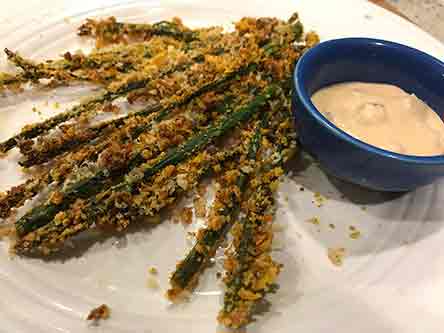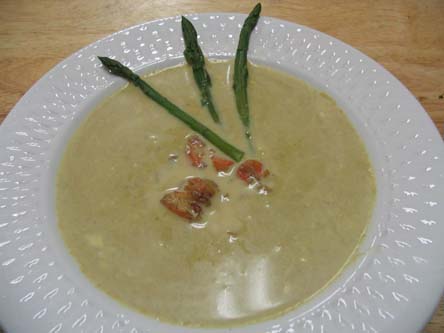| The Journey of the Spargel to Germany and Today
before 500 BC: It may have come first from China, but also in Greece and Persia it was like the wild asparagus of today and used for medicinal purposes.
400 BC: Hippocrates mentioned wild asparagus as a medicinal plant in his writings.
around 160 BC: Cato the Roman wrote about how best to farm Asparagus for eating not just medicine. Apicius the Roman food expert made ? The first written recipe for asparagus.
100 B.C.- 350 B.C. The demand for asparagus in the Roman empire exceeded what they could grow. Probably it was grown in Trier in the Rhineland (the oldest city in Germany)
350 B.C. Approximately.
With the fall of the Roman Empire asparagus farms died out, and for many years it was forgotten as a vegetable.
at 900: As monasteries were built in Germany the asparagus was back growing but for medicinal purposes.
in 1565: The Royal families in France started to raise asparagus as the Romans did for eating and the idea followed in Germany. The first documented cultivation of asparagus in Germany - in the Lustgarten in Stuttgart.
1750: Start of the "mass production" of asparagus, due to increased knowledge of farming techniques.
1760: "discovery" of keeping asparagus white, through techniques learned from Holland farmers.
1852: First canned preservation of asparagus in Brunswick, Germany.
in 1985: The "German asparagus museum" opens in Schrobenhausen
Source: "Asparagus, history, cultivation Recipes" by Englert and Wodatz
Why does some of the world call it Asparagus and some call it Spargel? The word comes probably as far back as a Persian word for "shoot"... was "Asparg". The A was dropped in Europe and variations for the word sparge or Spargel became the norm. In England some referred to it as, sparrow- grass. Some felt such a royal vegetable shouldn't be called something so mundane so experts began to refer to it as Asparagus. The Germans kept the name Spargel though. |











